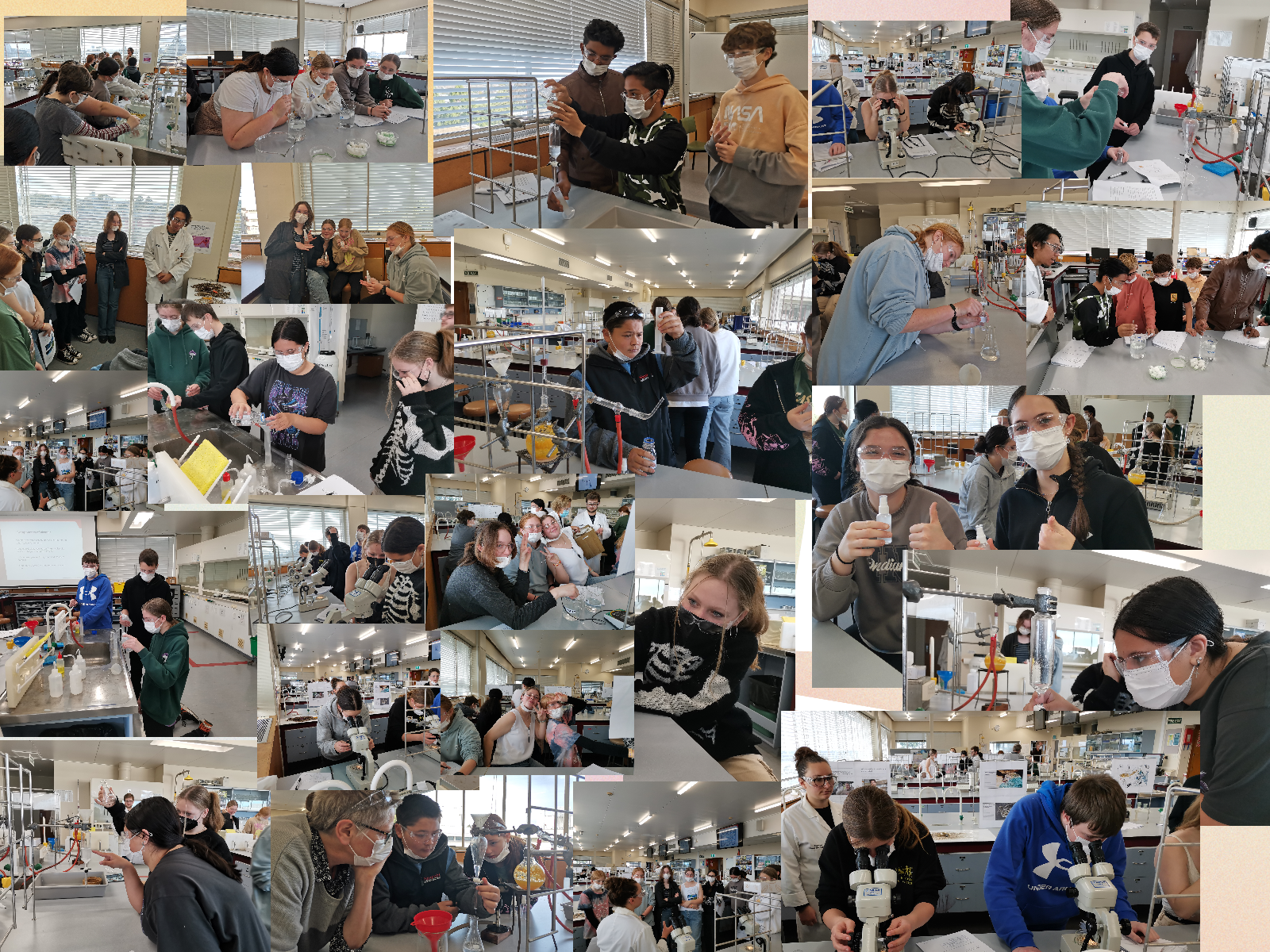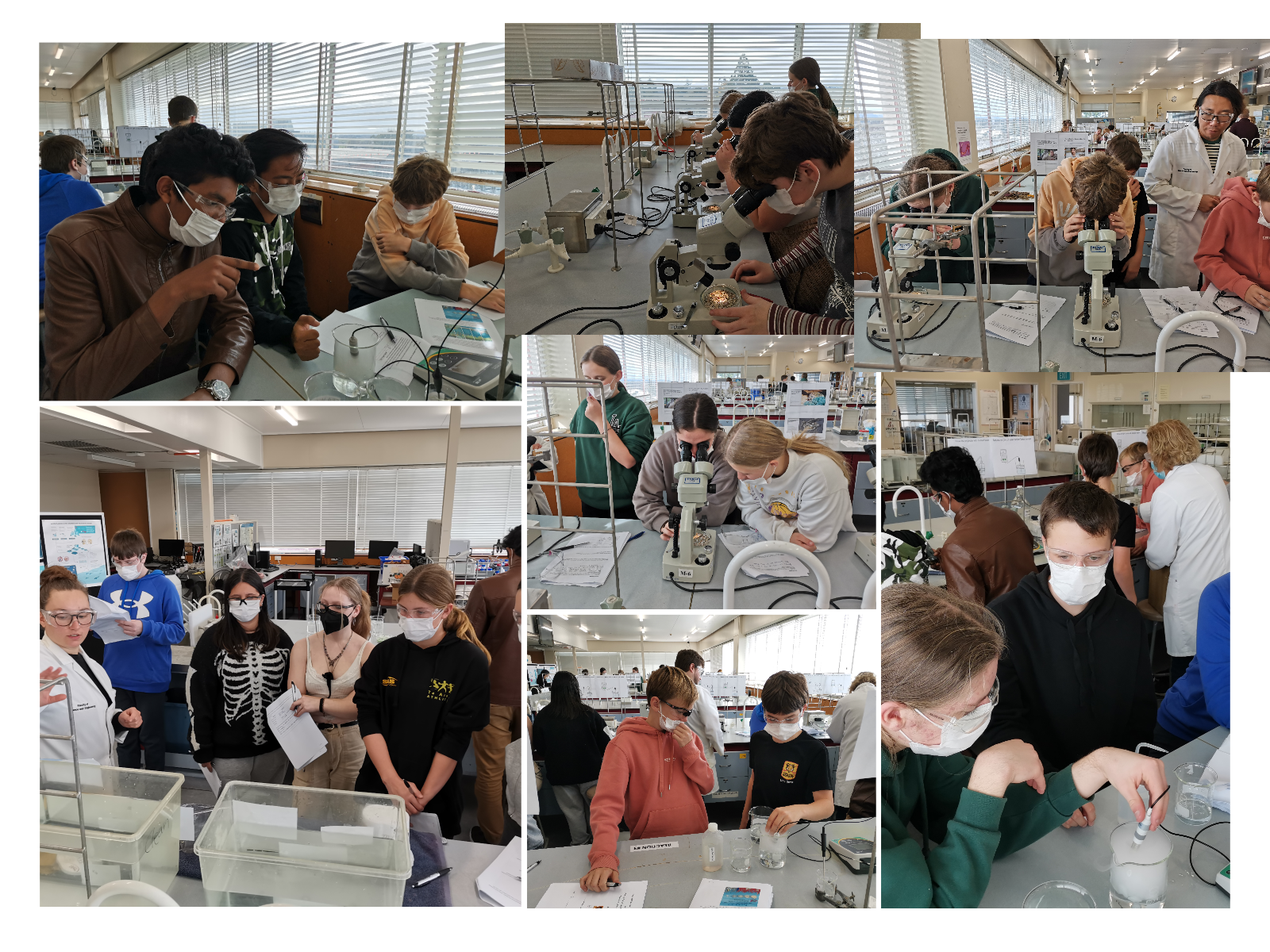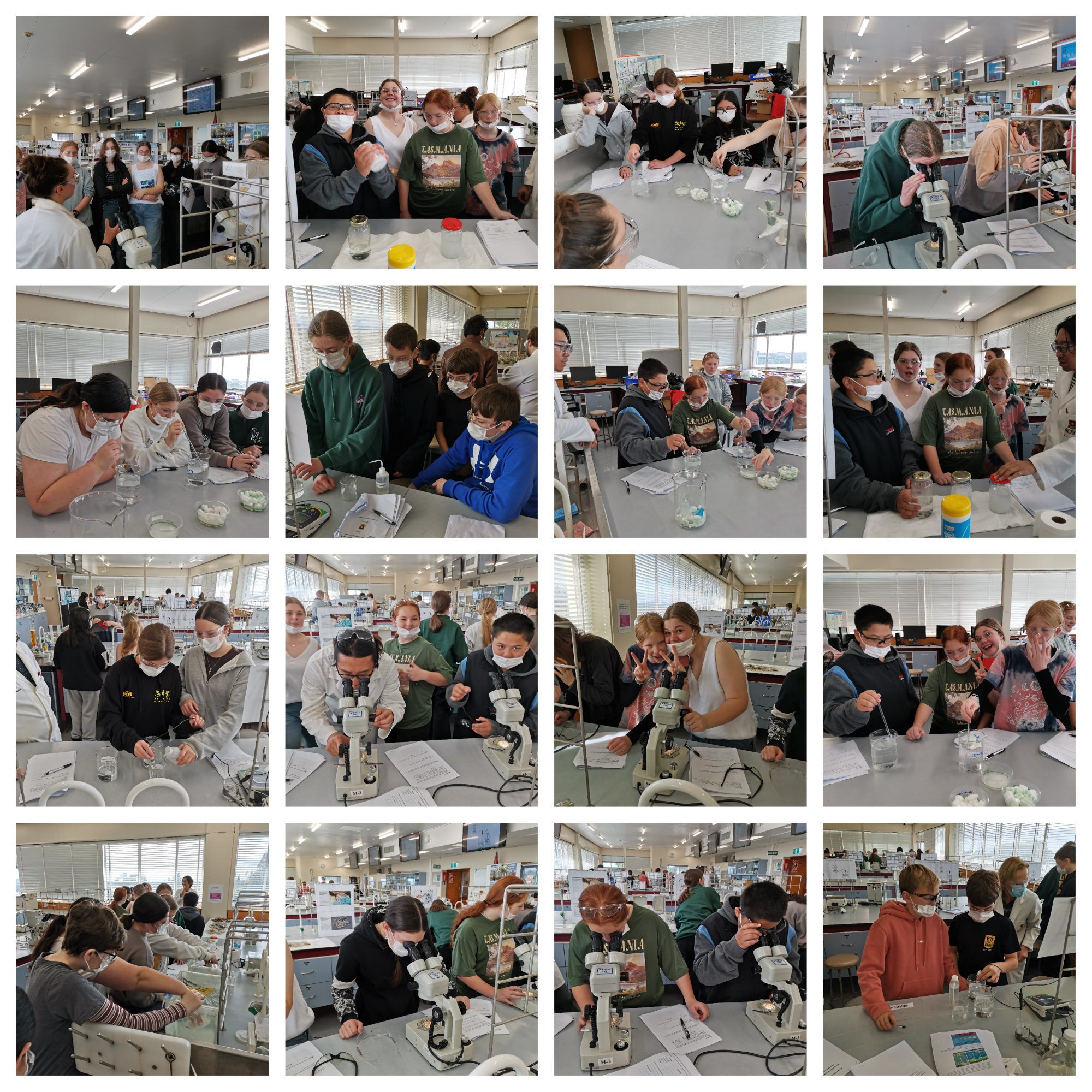Chem at Waikato23
Increasing Te Aroha’s rangatahi of the need to reduce greenhouse emissions was another major theme behind the PTC’s chemistry workshop at Waikato University. Dr Martina Pietsch Brown provided an in-depth understanding of the ways we can all work together to reduce its effect on the climate.
Her knowledge complemented reports from The Emission Gap 2020 which stated that “household consumption accounts for around two-thirds of global greenhouse gas (GHG) emissions; Ivanova et al. (2016) estimate lifestyle and consumption emissions at 65 percent of the global total, while Hertwich and Peters (2009) suggest the proportion to be around 72 percent of total emissions”. United Nations start with 10 actions stated that:
“Greenhouse gas emissions per person vary greatly among countries. In the United States of America, emissions in 2020 (the latest available data) were 14.6 tons of CO2 equivalent per person – more than double the global average of 6.3 tons, and six times the 2.4 tons per person in India. To preserve a livable climate, the average emissions per person per year will need to drop to around 2 to 2.5 tons of CO2e by 2030. Start with these ten actions to help tackle the climate crisis.”
Empowering rangatahi to start with simple actions to tackle the climate crisis is critical if we are to achieve future sustainability. The researchers of the Emission Gap Report 2020 developed an Avoid-Shift-Improve Framework designed to achieve lifestyle emission reduction by sector.
‘The Avoid category refers to the reduction in energy or carbon demand by foregoing things like travel and appliances.
The Shift category includes shifts in behavior to less carbon-intensive modes of consumption like walking.
The Improve category refers to reducing GHG emissions through improving efficiency or replacing technologies with lower-carbon ones, such as using hybrids, plug-in hybrids and electric vehicles’.
Taken together, our youth not only learnt about the effect of our carbon footprint but ways they can help reduce the carbon footprint of their whānau.
Wonderful to see minds buzzing with ideas and solutions they can take as they returned to school.




